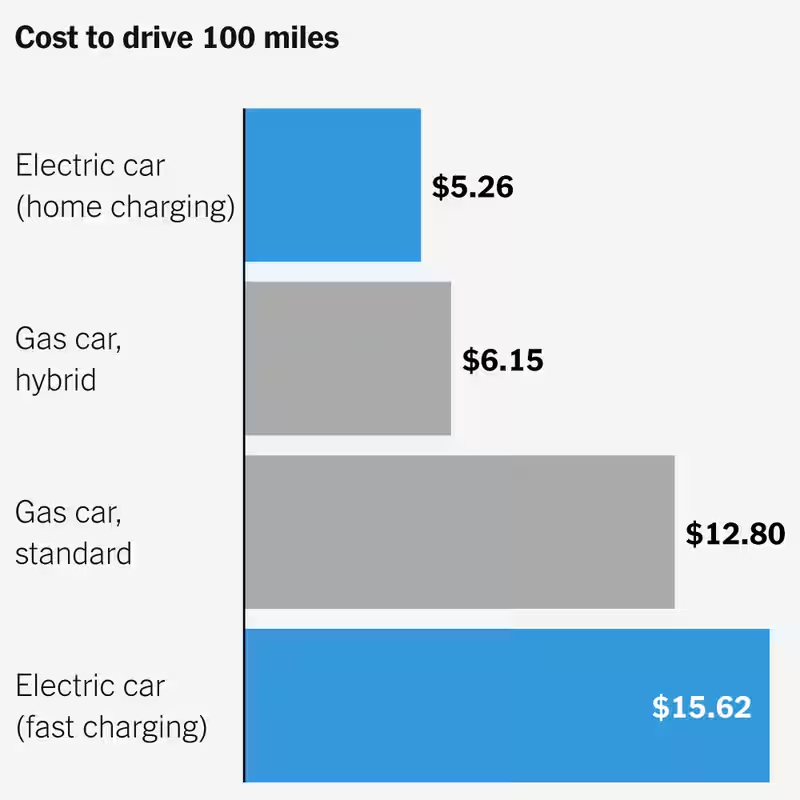If you’re thinking about going electric, here’s the good news: in most of the U.S., electric cars are still cheaper to fuel than their gas-powered counterparts. But—and it’s a big but—your savings (or costs) depend almost entirely on where you live.
Thanks to new data from The New York Times Upshot, we now have a state-by-state breakdown of what it really costs to drive 100 miles in an EV versus a gas car as of late 2025. And the results might surprise you.
Why Electric Car Costs Aren’t One-Size-Fits-All
Unlike gasoline—which hovers around a national average with modest regional swings—electricity rates vary dramatically from state to state. That’s because power prices are shaped by local energy mixes (hydro, coal, solar, nuclear), utility regulations, and even time-of-use billing structures.
For example, Washington State benefits from abundant, low-cost hydropower, making home EV charging dirt cheap. Meanwhile, Hawaii relies heavily on imported oil for electricity, pushing rates—and EV fueling costs—much higher.
State Rankings: Where EVs Save the Most (and Least)
Using the latest data from the Energy Information Administration and AAA (as of August 2025), here’s how the cost to drive 100 miles compares across key states:
Top 5 States Where Electric Cars Are Cheapest to Fuel
| Rank | State | Cost per 100 Miles (EV) | Savings vs. Gas Car |
|---|---|---|---|
| 1 | Idaho | $3.57 | –$9.61 |
| 2 | Utah | $3.79 | –$9.23 |
| 3 | Montana | $3.87 | –$8.98 |
| 4 | Oklahoma | $3.89 | –$8.92 |
| 5 | Missouri | $3.89 | –$8.90 |
States Where EVs Are Closest to (or More Expensive Than) Gas
| State | EV Cost per 100 Miles | Gas Cost per 100 Miles | Net Difference |
|---|---|---|---|
| Hawaii | $12.32 | $12.14 | +$0.18 |
| California | $10.52 | $10.50 | +$0.02 |
| Connecticut | $9.50 | $12.48 | –$2.98 |
| New York | $8.33 | $12.99 | –$4.67 |
Note: Gas car assumed to get 25 mpg; EV efficiency = 0.3 kWh/mile. National avg gas price = $3.20/gal; avg home electricity = $0.175/kWh.
What About Public Fast Charging?
If you don’t have home charging, costs rise significantly. Fast-charging rates average $0.52/kWh—more than double residential rates. In states like Florida or Texas, that can erase most or all of the EV savings.
Pro tip: Many utilities offer “off-peak” EV rates that drop nighttime charging costs by 30–50%. Always check with your local provider.
The Bigger Picture: EVs Still Win Long-Term
Even in high-electricity-cost states, EVs often come out ahead over time thanks to lower maintenance (no oil changes, fewer brake replacements) and potential tax credits. Plus, as battery tech improves and more renewable energy comes online, the gap is expected to widen in EVs’ favor.




